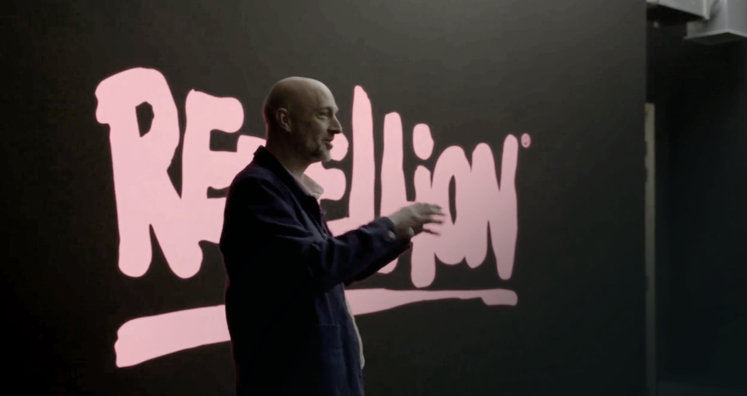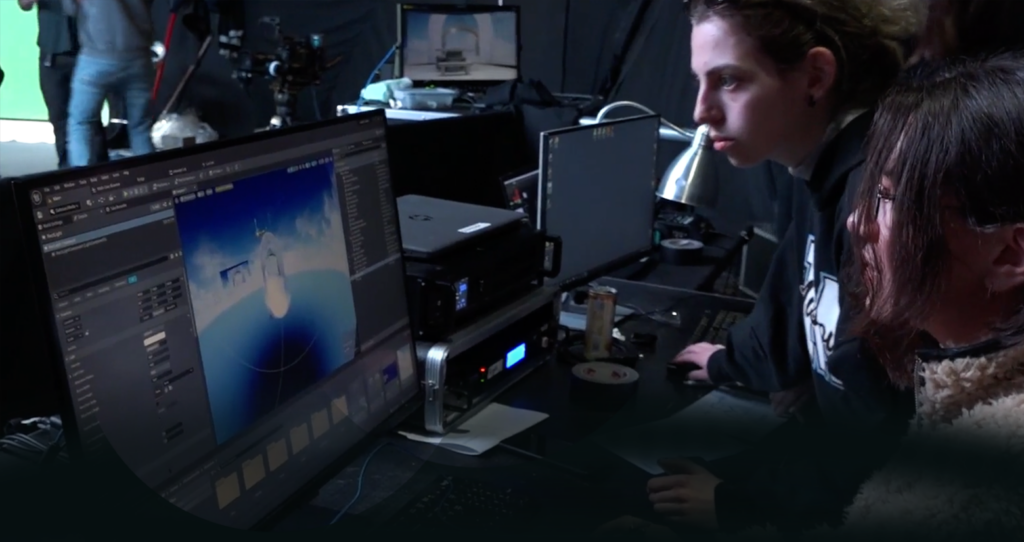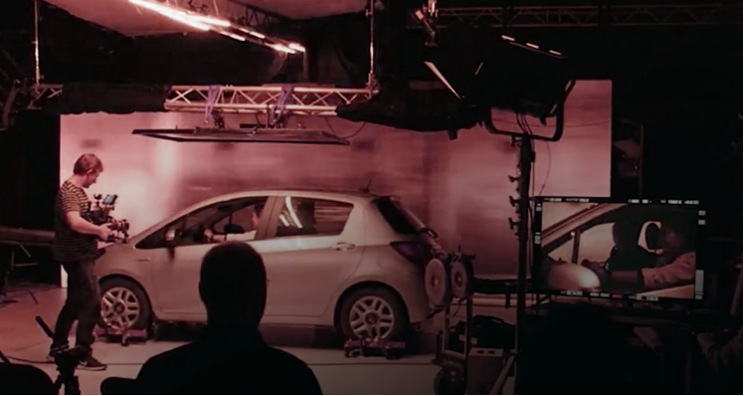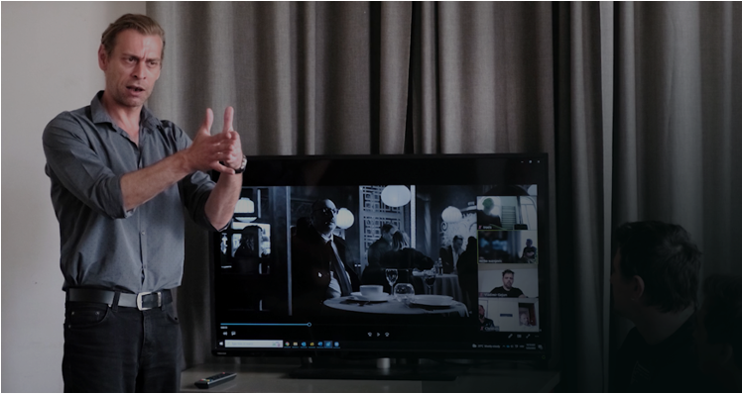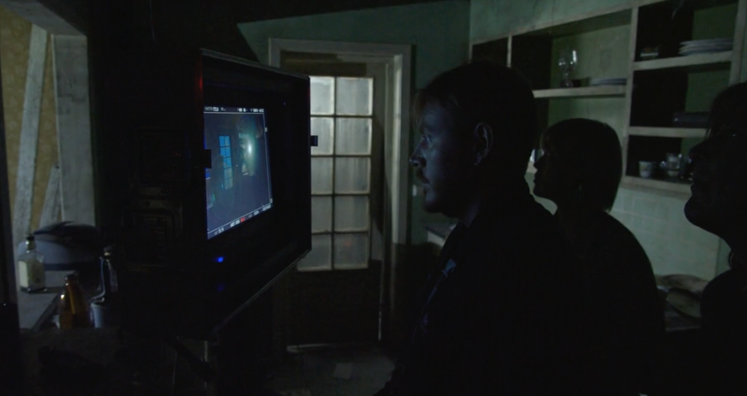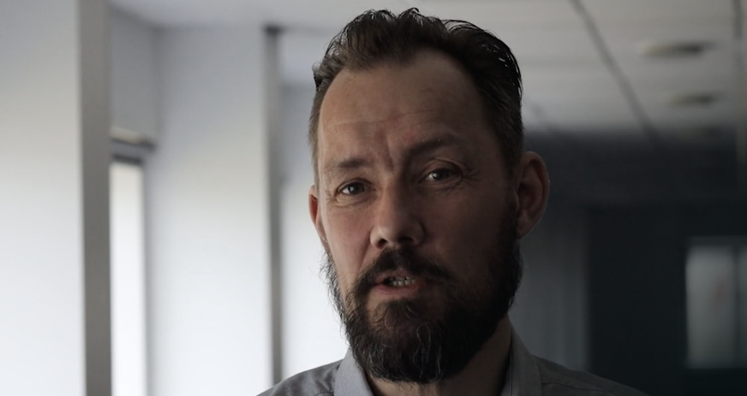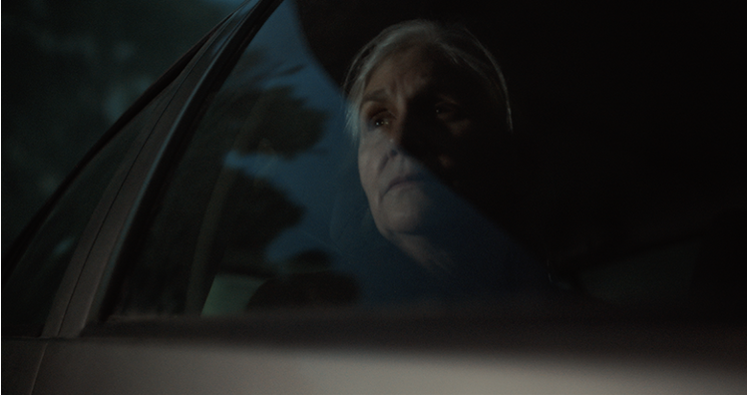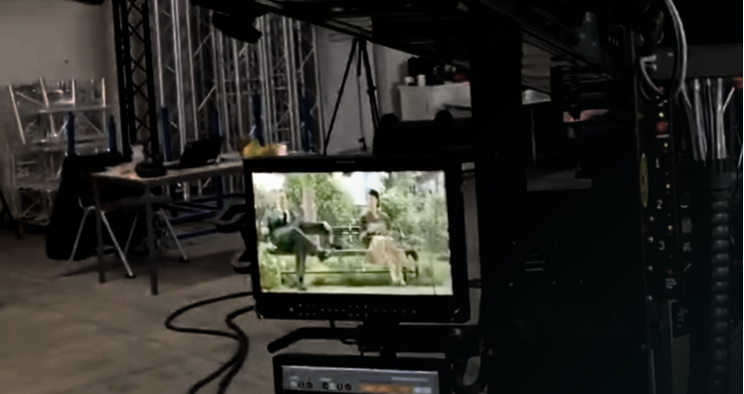



2020
2021
2022
2023
A PERFECT STORM …
AND BEYOND…
LOCKDOWN | LOCKOUT

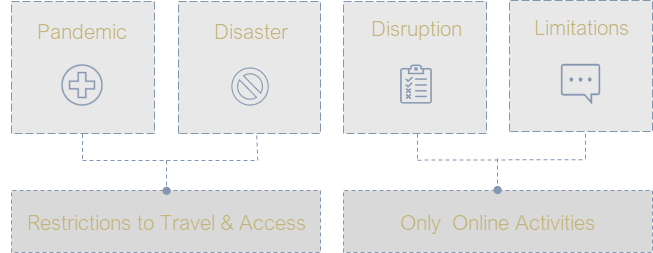




”…as we look to integrate Arts and Tech, to promote more environmentally sustainable production routines, Science inevitably becomes part of our focus …”
” Via the RE:SEARCH network, VIPROS momentum
and collaborations are maintained …“
KA2: PARTNERSHIP FOR INNOVATION & GOOD PRACTICES
VIPROS is a European Partnership for Innovation & Good Practices project.
It integrates Art and Technology to define new artistic opportunities for film and TV production in order to advance content creation efficiency across the media sector. The project is in line with the EU KA2’s objectives and aims to enhance collaborative initiatives in education, research, and business.
In this section a selection of VIPROS project logs are presented as a brief introduction to the project’s activities, scope and focus areas.
PROJECT LOG : 14
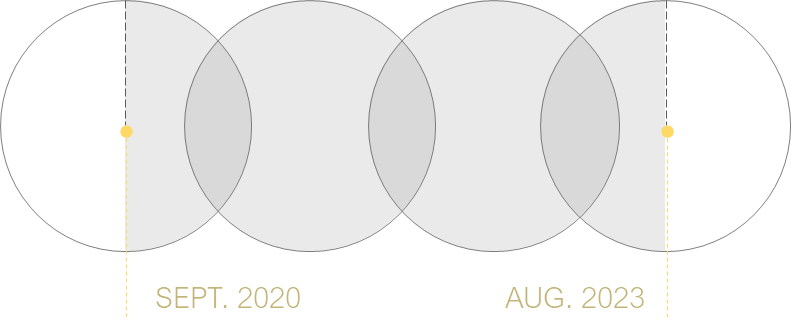
WORKSHOP IN DUNDEE ( LTTA6 )
This workshop took place at the Abertay University School of Design and Informatics in Dundee. It was a combination of partner meetings, keynotes by expert speakers for staff, researchers and students, as well as networking. Participants started out at the ViPRE research environment with a facility tour, including an introduction to the ViPRE activities and how they connected to the VIPROS results.
Afterwards, activities alternated between partner project meetings, keynotes from experts, presentations from researchers and open discussions among participants. Each day concluded with networking sessions, introducing NFS and SDI students, as well as external speakers to each other. Except for partner meetings, all activities involved students, researchers, partners, invited speakers, and SDI staff.
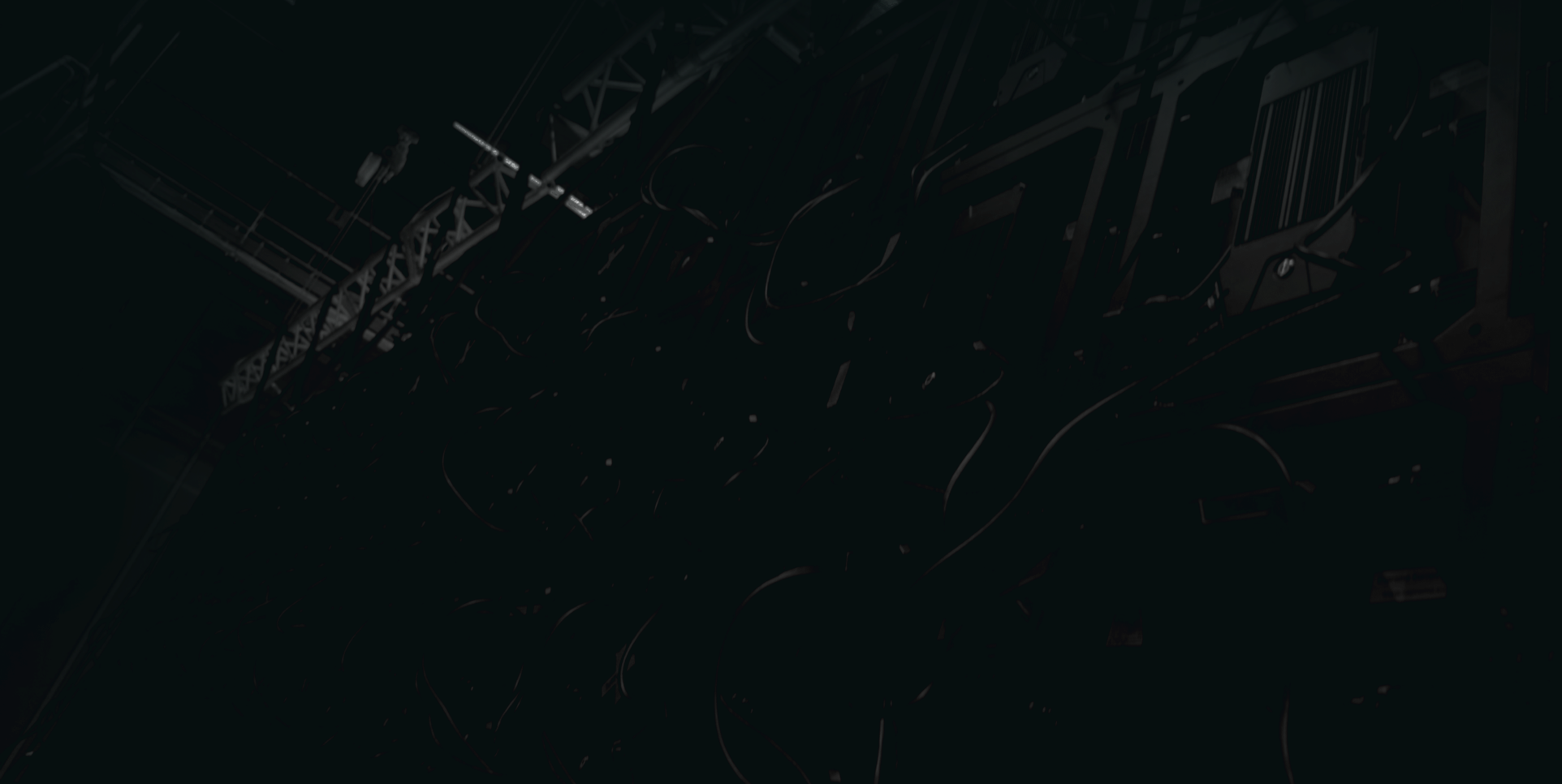
PROJECT LOG : 13
LABSTUDY & COURSE TRIAL IN ZAGREB
This Labstudy was a combination of collaboration with industry and the second of two course trials, organised by the Academy of Dramatic Art in Zagreb. This integrated format was a result of findings and insights from previous Labstudies and Course trials, indicating the two formats would benefit from intersecting with each other. This assumption proved to be correct, as the practical collaboration between students and professionals, made their knowledge exchanges intuitive and the students’ learning spontaneous and fluent, yet effective.
Lessons learned, from this combined format, has informed new course designs in both curricula and lifelong learning contexts. A positive result with impact beyond the activity as well as the project.
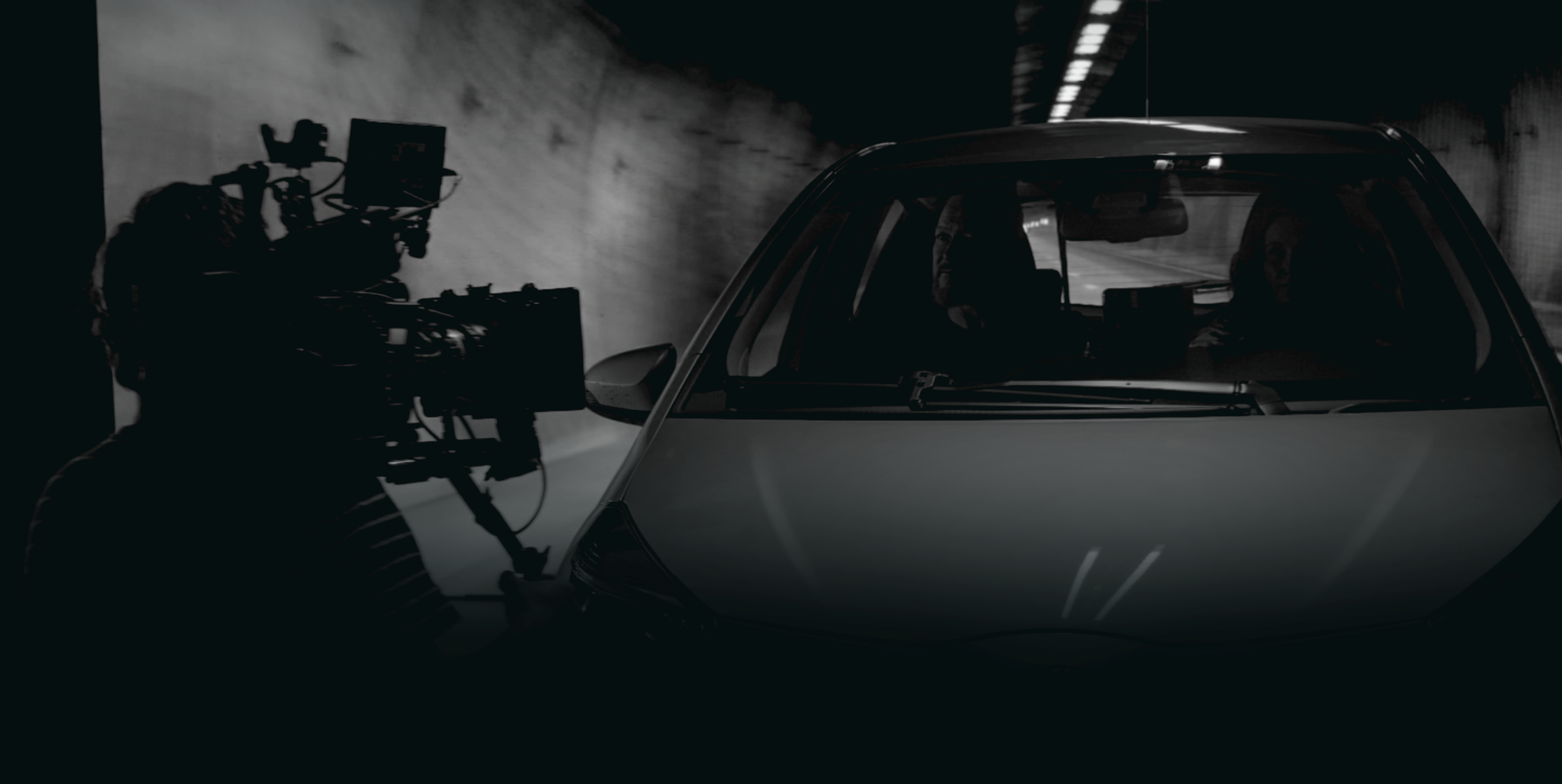
PROJECT LOG : 12
SHOWCASE ( ME3 ) & WORKSHOP ( LTTA5 ) IN LILLEHAMMER
The third VIPROS’ dissemination event was hosted by the Norwegian Film School (NFS). It featured presentations, a panel discussion and a full-scale showcase of a Virtual Studio Set, allowing professional and student audiences to experience the features and routines of a live virtual production recording for a as it unfolded.
An intention with the showcase was to use the audience response as background for partner discussions during a partner workshop held in conjunction with the showcase. The workshop focused on about how the innovative concept of virtual production may best be introduced to the film/TV sectors. A highly effective combination, as the responses to the showcase provided immediate input for the workshop discussions.
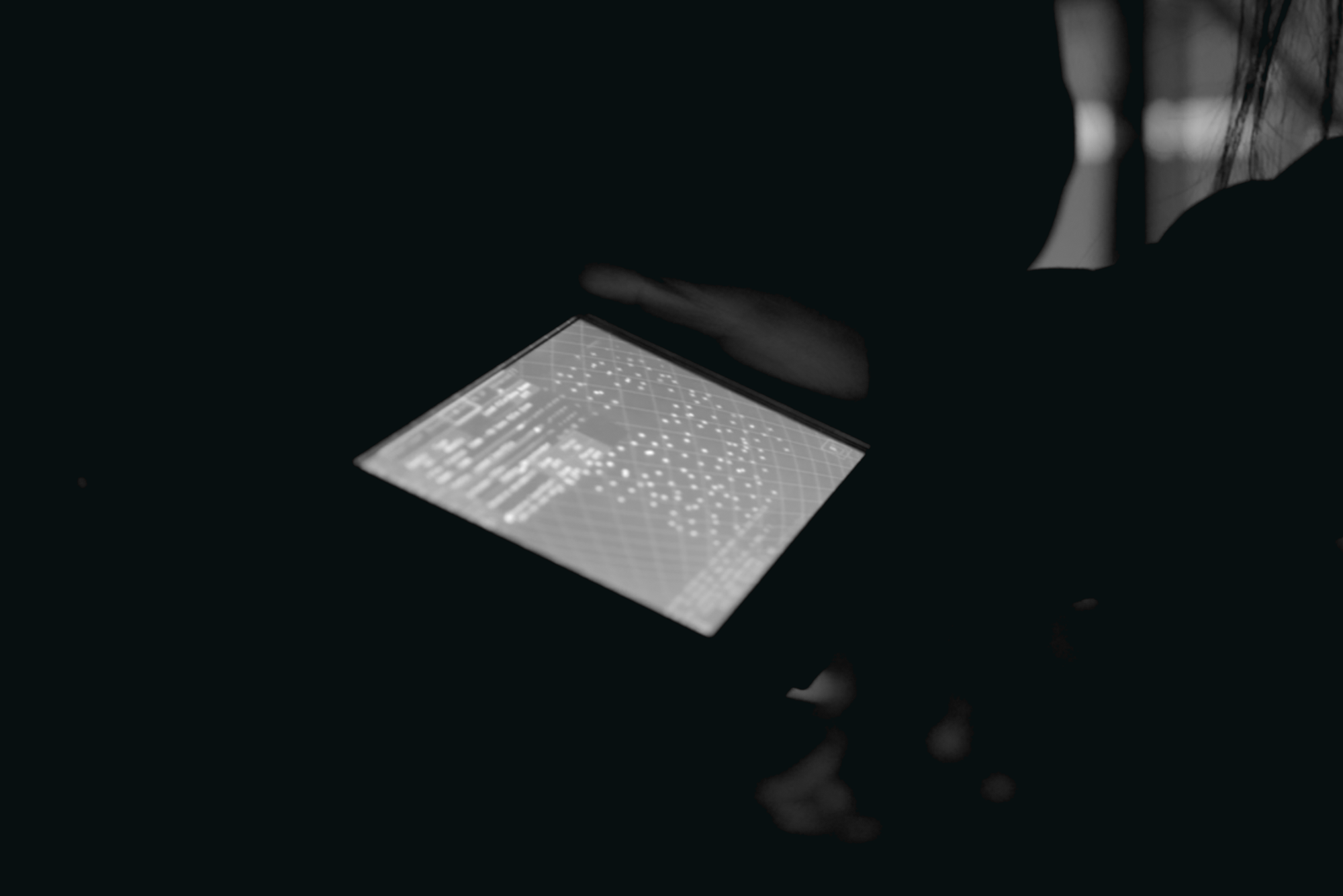
PROJECT LOG : 11
PARTNER WORKSHOP IN ZAGREB ( LTTA3 )
The third partner workshop, was hosted by the Academy of Dramatic Art (ADA) and held in Zagreb. It included presentations from each partner on their findings in their individual processes but also brought in industry partners, who were either, part of – about to, join the next VIPROS Labstudies. In a related vein, NFS graduate Anna Moland’s, presentation of her research, from a previous partner workshop was part of the background for this workshop’s exploration of the benefits in combining educational Labstudies and professional investigations of Virtual Production workflows.
In that, the workshop effectively transitioned previous insights to new initiatives.
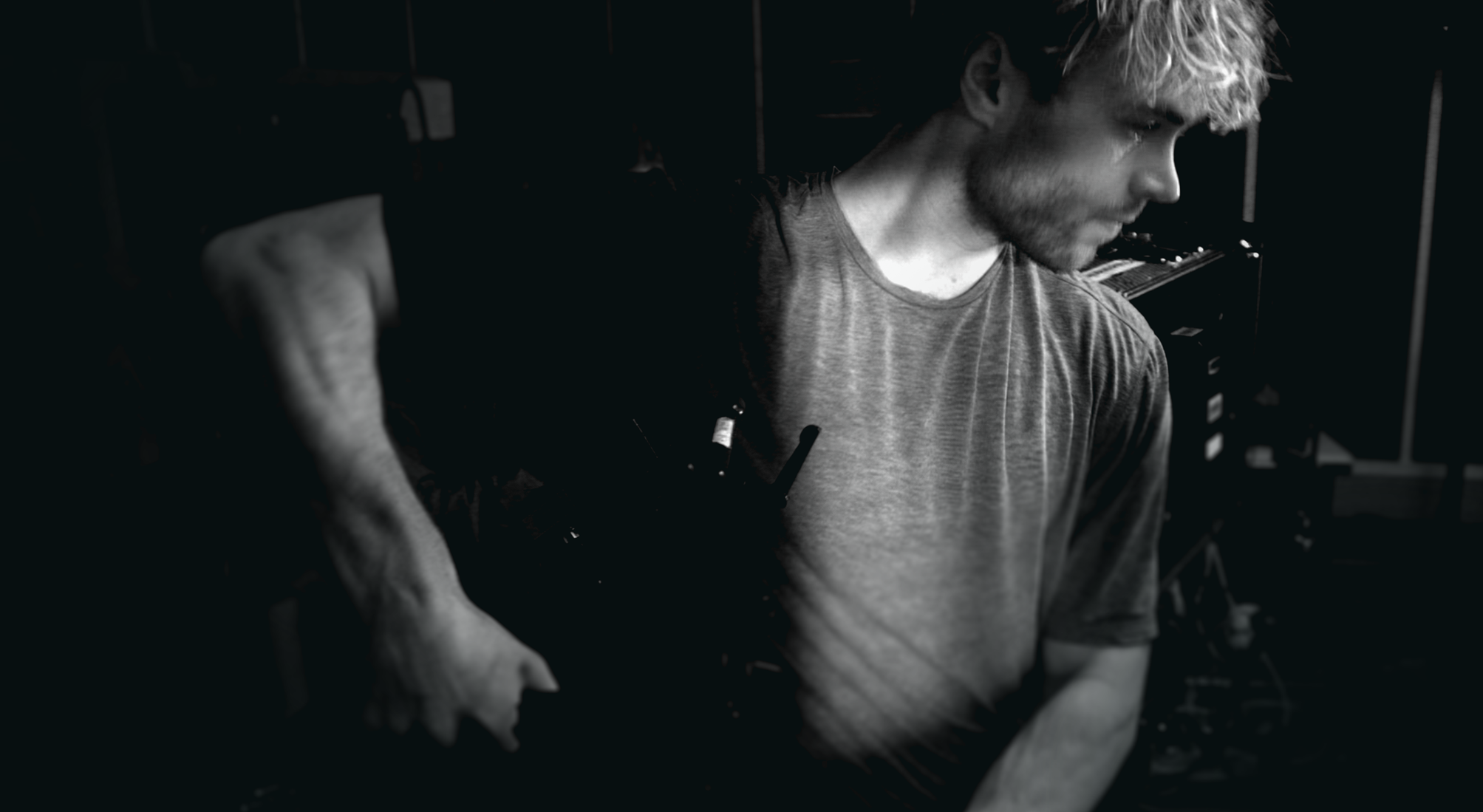
PROJECT LOG : 10
JOINT COURSE TRIAL BETWEEN LILLEHAMMER & COPENHAGEN
This third course trial was done in collaboration between the VIPROS partners, CADA and NFS, but also involved students from the Kristiania University College in Oslo. The trial entailed students from all the schools working together on joint projects, focused on a subset of virtual production: real-time keying. A method, allowing evaluation and adaption of physical and digital sets, while recording.
A most important outcomes of the course, pertains to the realisations of the need for aligning workflows and professional understanding of details in the meeting between physical and digital fields. The course trial had a positive impact on both the design of courses and the understanding of additional courses needed.
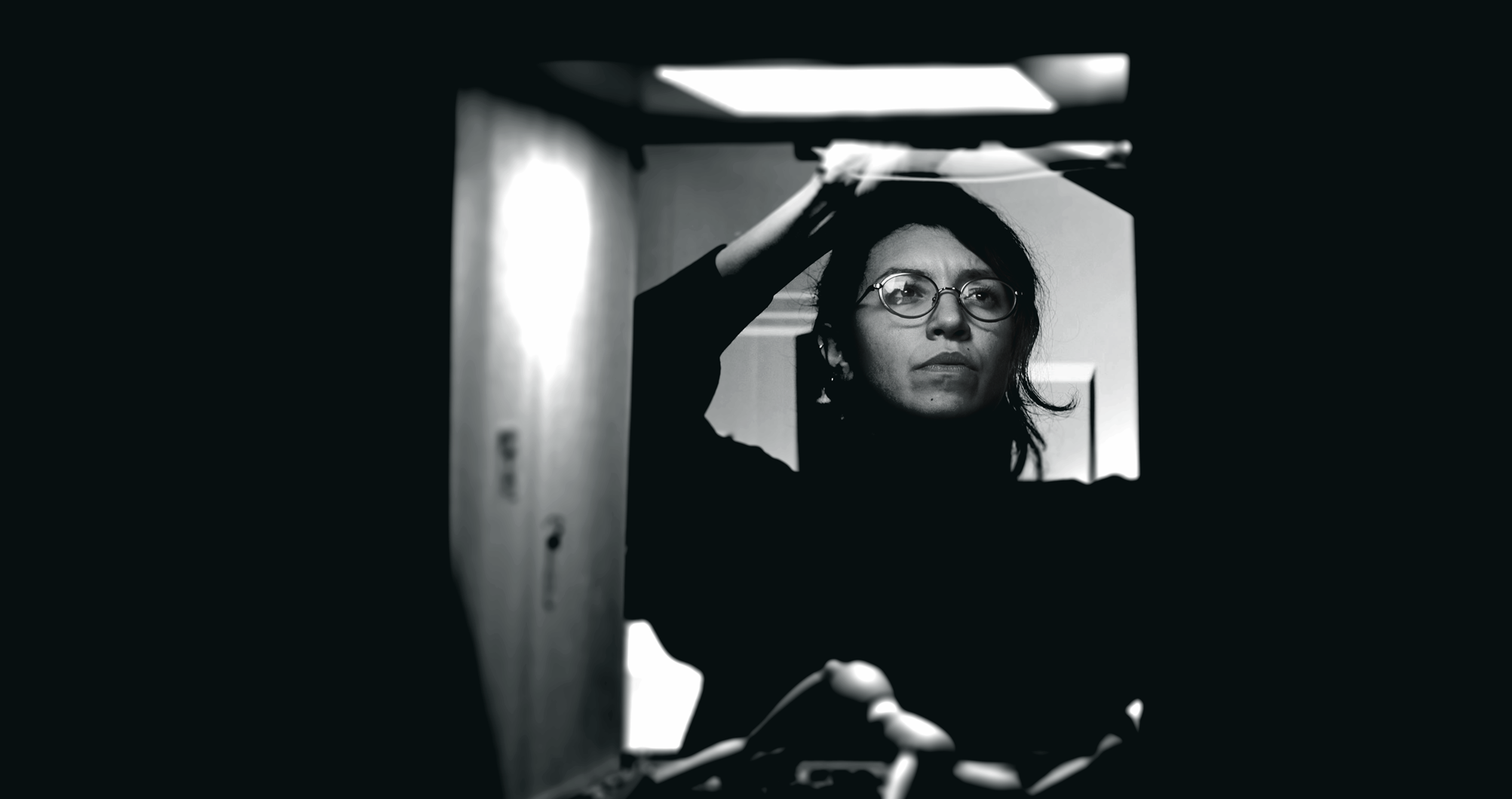
PROJECT LOG : 09
COURSE TRIAL IN ZAGREB
This trial was based upon course designs and learning outcome definitions done in collaboration between all VIPROS partners. The course trial was carried out by ADA. It integrated and further investigated, an innovative workflow identified at the NFS during Labstudies2 and discussed during VIPROS partner workshops.
A key outcome of the trial was verification and enhanced understanding, of the benefits of extensive previsualisation with practical interdisciplinary collaboration during the early stages of development. The more tangible collaborations are, the more shared knowledge they generate. Insights from his course trial are reflected in several of the VIPROS courses, and in that, part of the Course Catalogue.
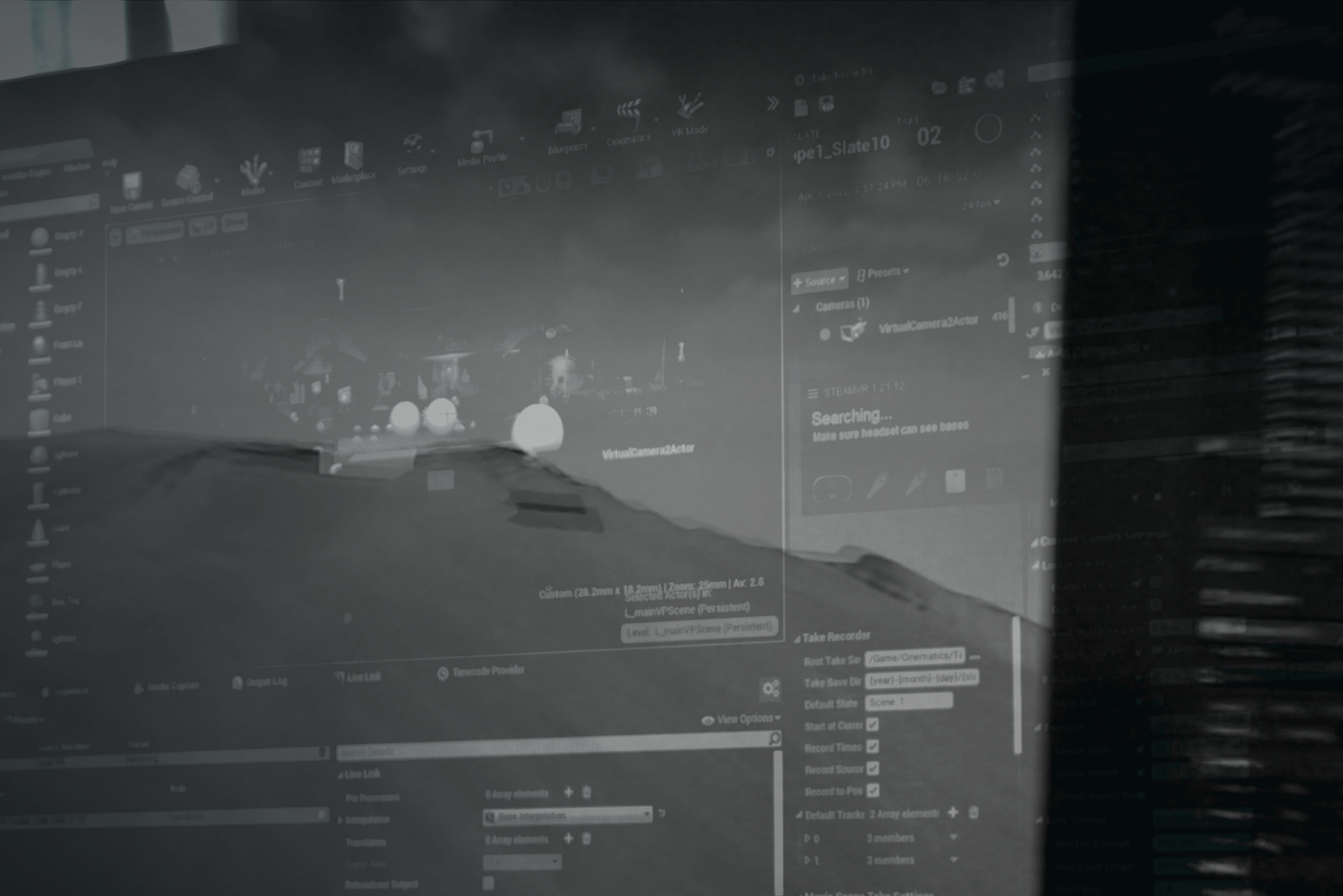
PROJECT LOG : 08
WORKSHOP IN COPENHAGEN ( LTTA2 )
The second partner workshop introduced a new optimised format, combining more topics and allowing partners to exchange knowledge faster and collaborate more effectively. The format was introduced to mitigate influence of obstructed information flows, postponed activities and subsequent delays caused by the two force majeures impacting the project One, the Covid-19 pandemic, the other the dual earthquakes in Croatia.
Although compact and intense the optimised workshop was very successful, and the partners agreed that the well-prepared and presentation-based discussions made headway and the format was decided to be a new standard. This affected all subsequent workshops and has been used since this instance.
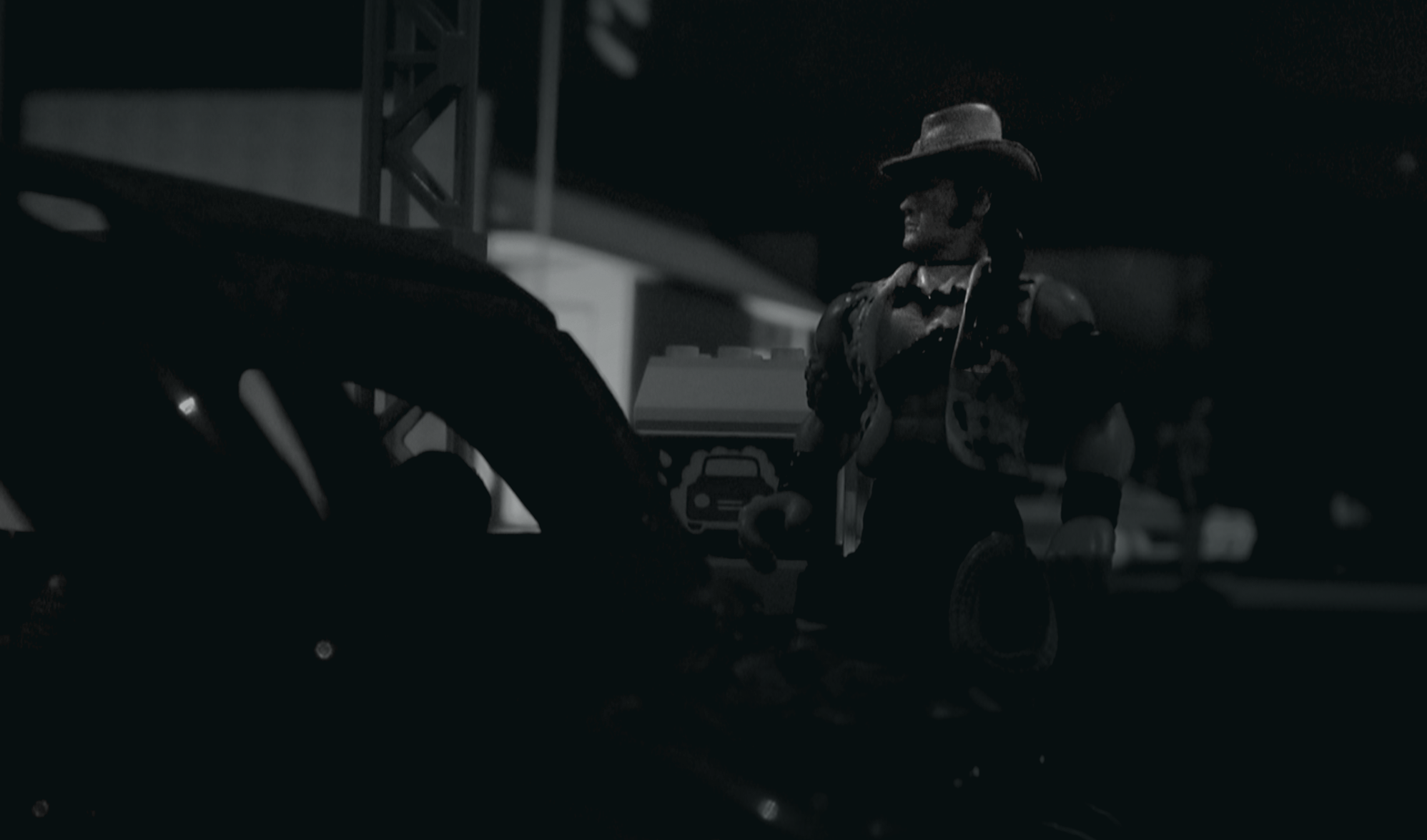
PROJECT LOG : 07
SECOND LABSTUDY IN OSLO
As part of VIPROS Labstudies2, focused on industry collaborations, a Producer student from NFS MA programme, did a virtual production research project in collaboration with one of Norway’s leading virtual production companies, Xvision and Oslo’s oldest film studio, ”Filmparken”. The student also worked artistically with some of Norway’s most established creatives, among others, a director, a production designer and a cinematographer.
The project connected findings from activities in Labstudies with leading industry stakeholders. This way, strengthening and broadening dissemination of VIPROS findings and conclusions. Lastly, the project applied new innovative work routines in line with VIPROS innovation framework, furthering its innovation mission.
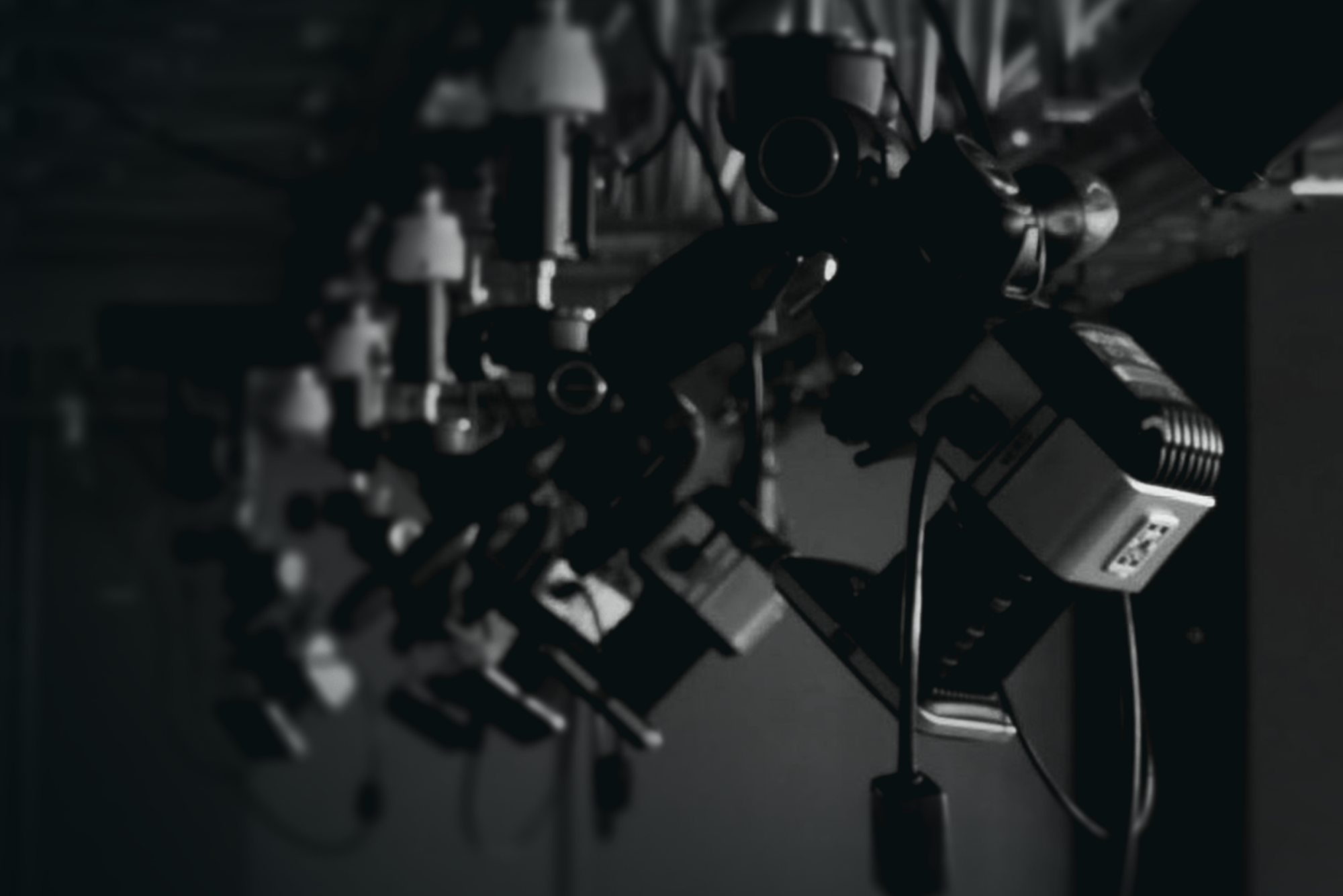
PROJECT LOG : 06
SECOND LABSTUDY IN COPENHAGEN
This Labstudy extended from a previous study done by Copenhagen Academy of Digital Arts (CADA). It involved collaboration with film industry professionals and equipment rental facilities. The framework for the study was to film a scene in a historic setting, using a LED volume. A specific focus was to create a seamlessly connecting match between digital and physical props on set.
The study provided detailed understanding of challenges and opportunities when working between the physical and digital domains, part of virtual production, but also rendered an understanding of the need for digital artists and technicians to develop their existing working methods to better match the demands of a film set
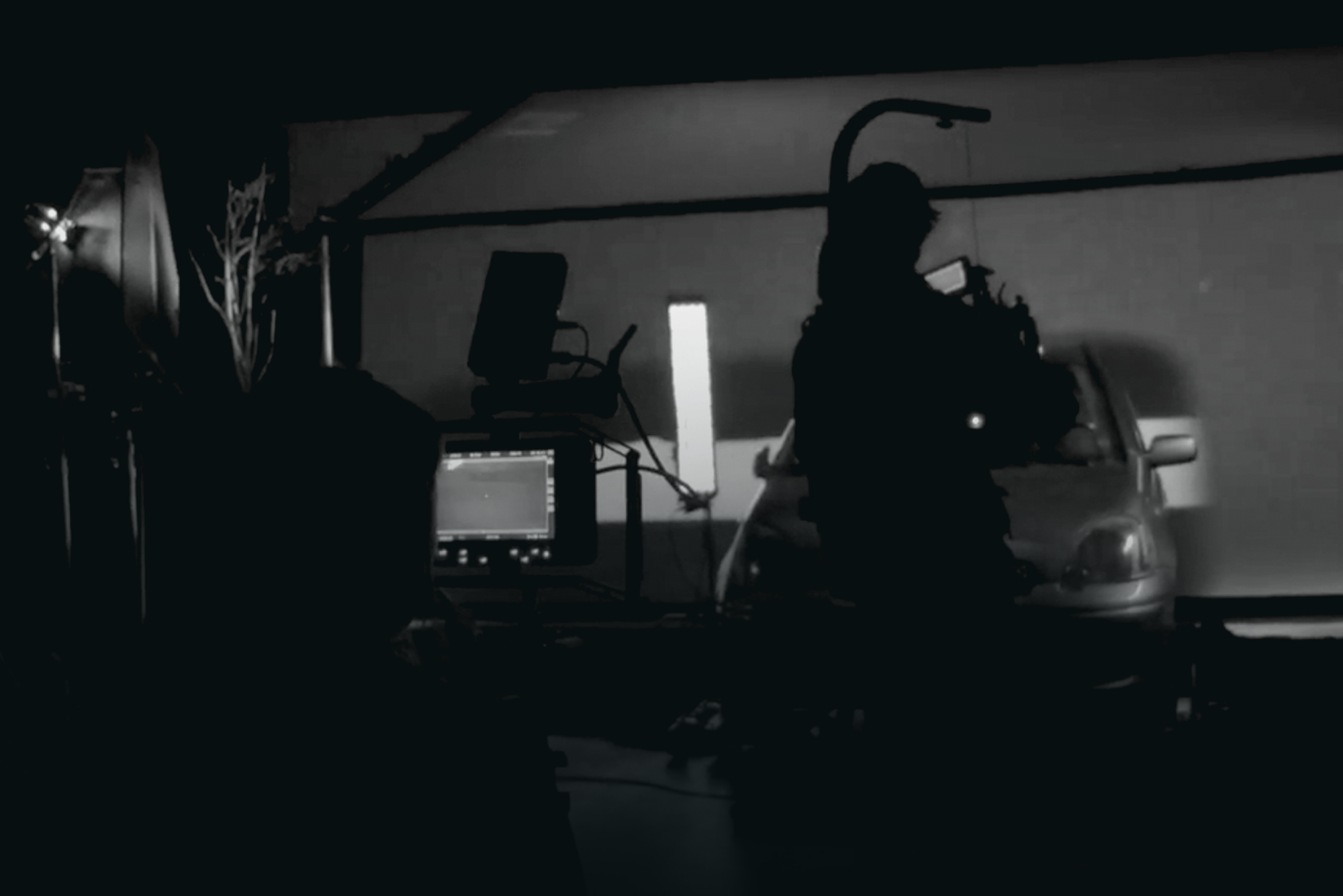
PROJECT LOG : 05
FIRST LABSTUDY IN OSLO
During NFS first Labstudies, 3 MA students and 1 research fellow from the NFS did Artistic Research projects using virtual production. Each explored different aspects of Virtual Production, but they all collaborated in different configurations.
Via the projects’, directing, cinematography and producing, as well as production design processes, key film making routines were investigated in context of the new use of Computer Generated Images (CGI), game engine, camera tracking and large screen projections. The projects’ outcomes were most conducive and paved way for key innovations later employed by VIPROS partners‘ participating staff and students. Finally, the projects rendered insights informing the VIPROS demonstrators and courses.
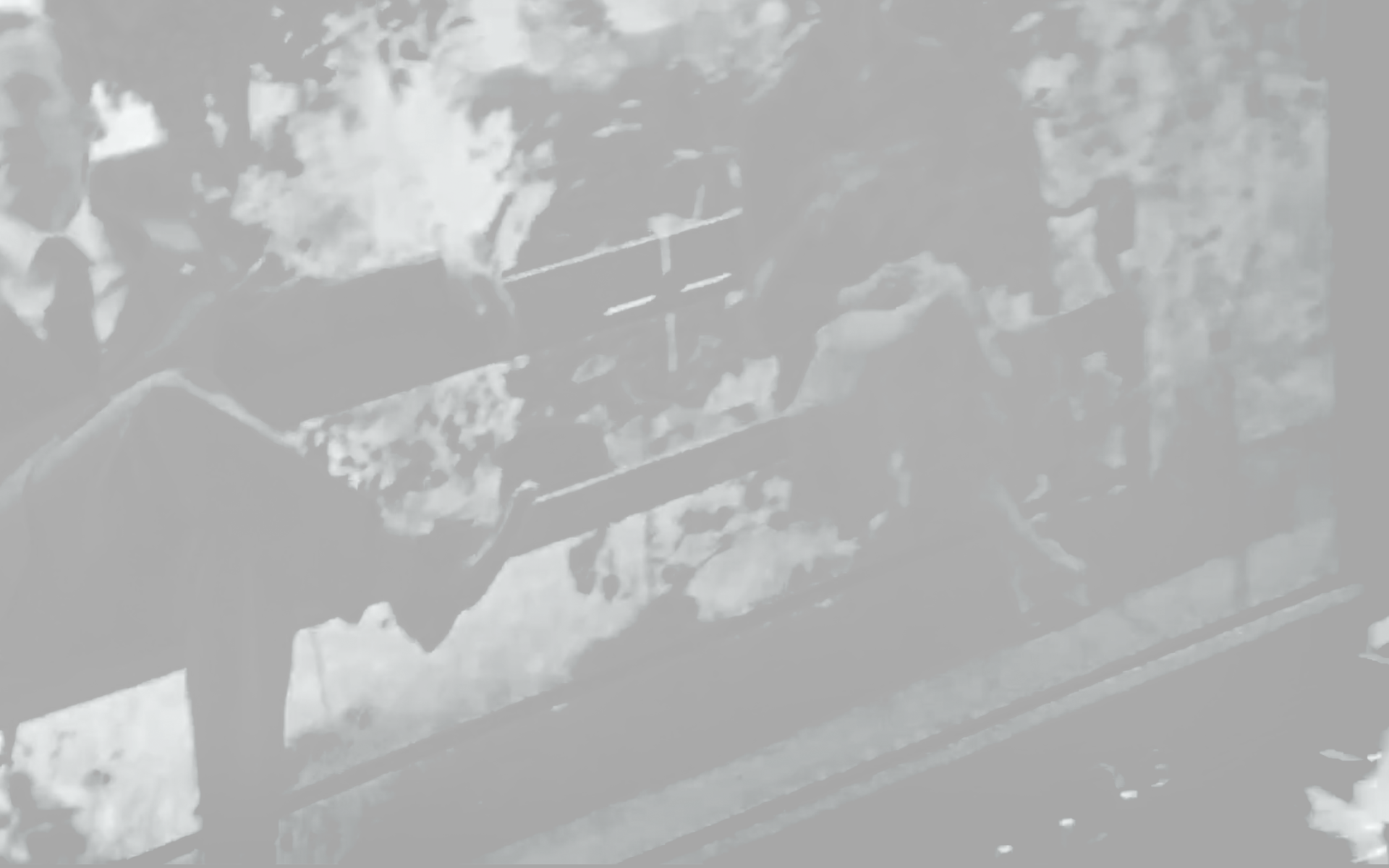
PROJECT LOG : 04
FIRST LABSTUDY IN COPENHAGEN
This 1st Labstudy aimed to produce a small technical demo with limited means and explored how a minimally viable virtual production might be defined. The demo was developed in collaboration between CADA and select virtual production related industry professionals.
The demo was produced successfully and delivered a detailed understanding of the conceptual and practical aspects of interactive real-time screen graphics and virtual camera frustums. The findings from this Labstudy were of great value to the project, as they provided proof of the value in exploring virtual production in a broader sense, which allowed more fields to be part of the Labstudies.
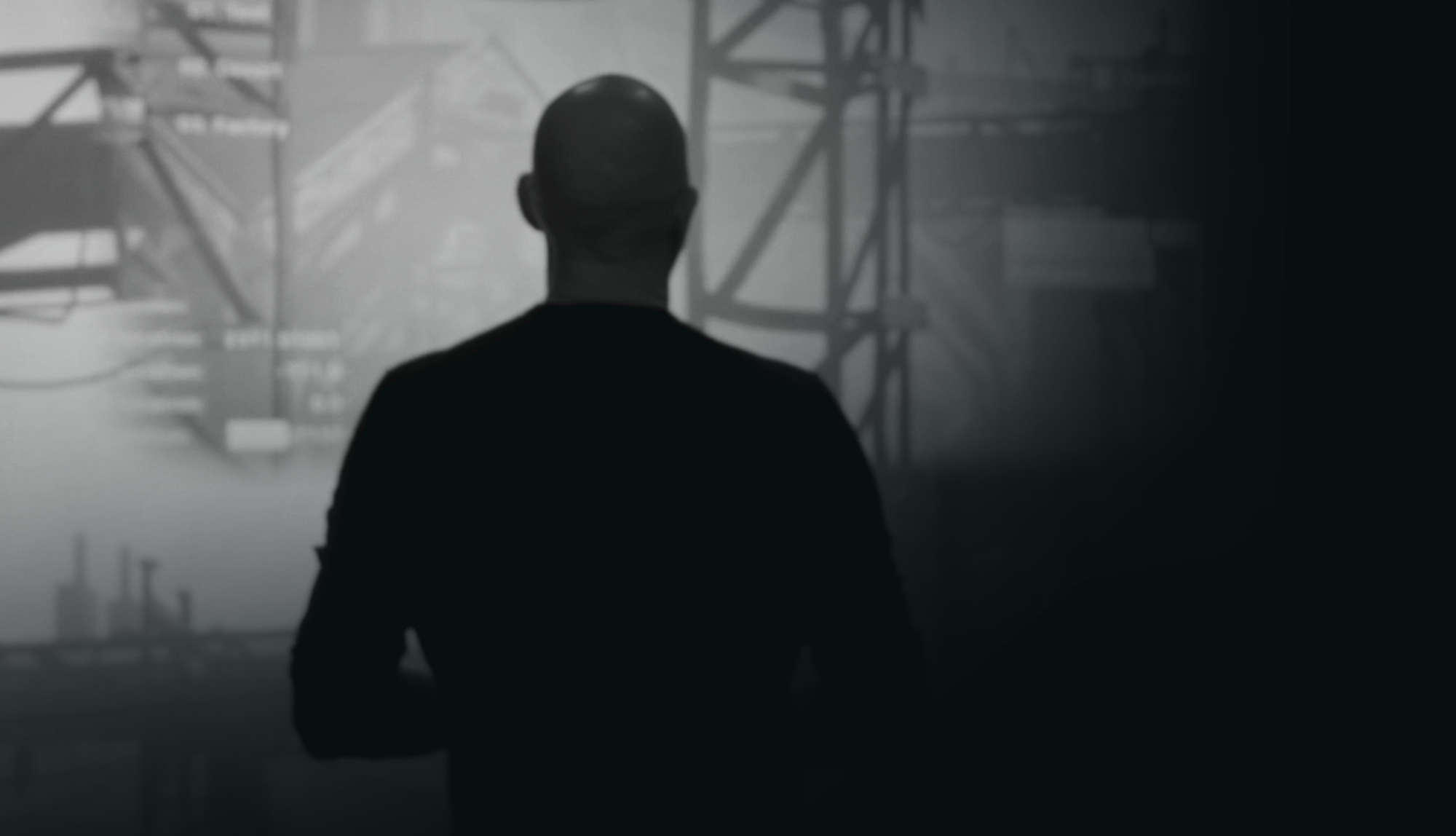
PROJECT LOG : 03
EARLY CONCEPT TESTS IN OSLO
This pre-study was, fundamentally, a technical test but also served as a ”proof of concept” for the NFS. It not only validated assumptions about Virtual Production workflows and technical concepts, but also indicated VP’s wider artistic potential and brought its sustainability opportunities to the fore.
The pre-study included NFS teaching staff, a technical research fellow, as well as a graduation student and senior member of staff from CADA, who played a pivotal participated in establishing core technical set ups.
Although limited in scope, this study rendered essential understanding, prompted core realisations and inspired a horizon of exploratory processes, moving forward.
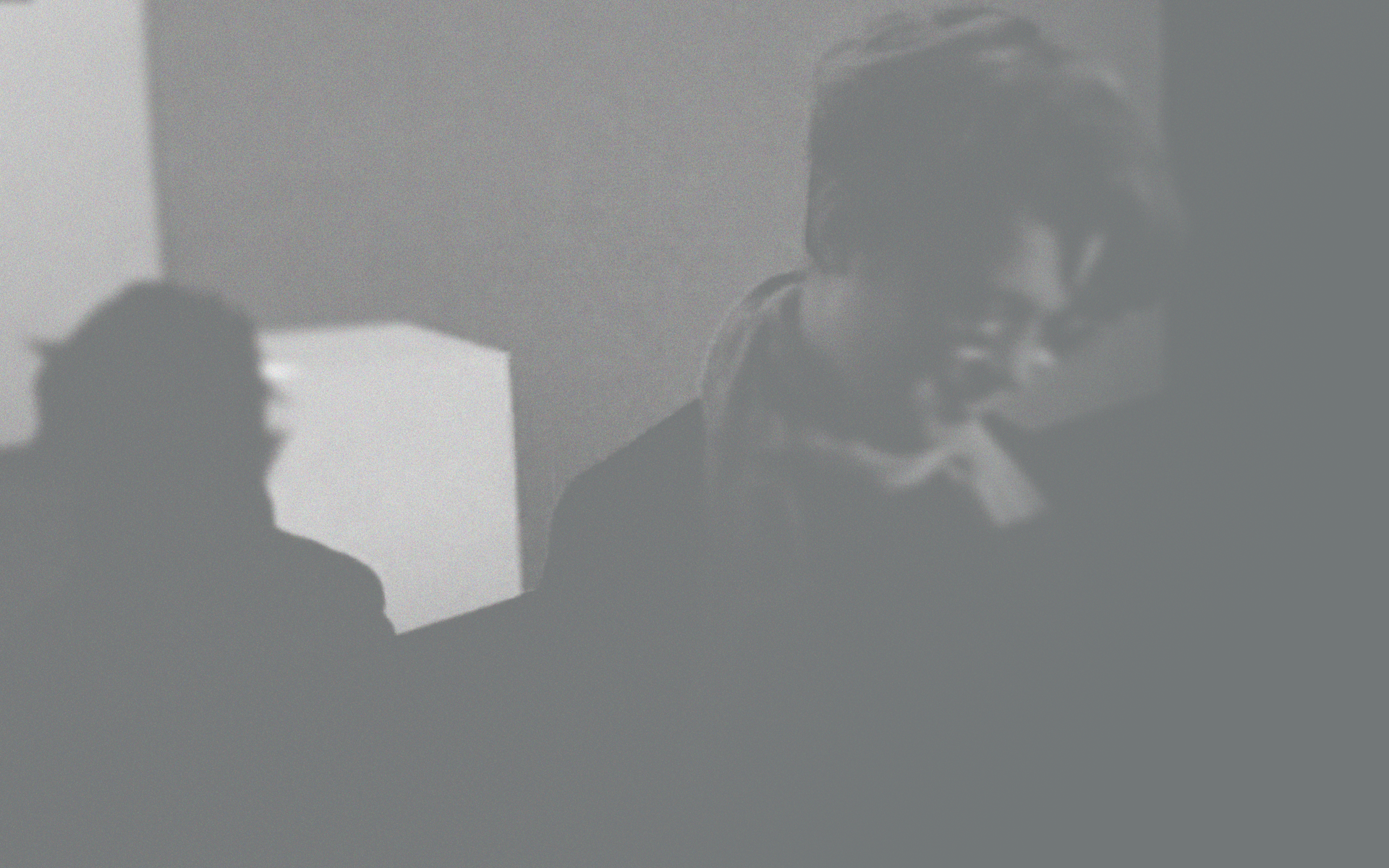
PROJECT LOG : 02
EARLY TECH TESTS BETWEEN COPENHAGEN & OSLO
When the VIPROS project began, the technological evolution of VP was still fringe and nowhere near the mainstreamed tool it has become by the end of the project. Therefore, the initial practical step was deep-dive into the very sparse technical documentation An investigation done in collaboration between CADA and NFS, with CADA leading the technological research and NFS establishing extensive dialogue with Epic, publisher of the Ureal engine.
A collaboration that produced a first technical prototype, which paved way subsequently enabled larger technical and conceptual pre-study
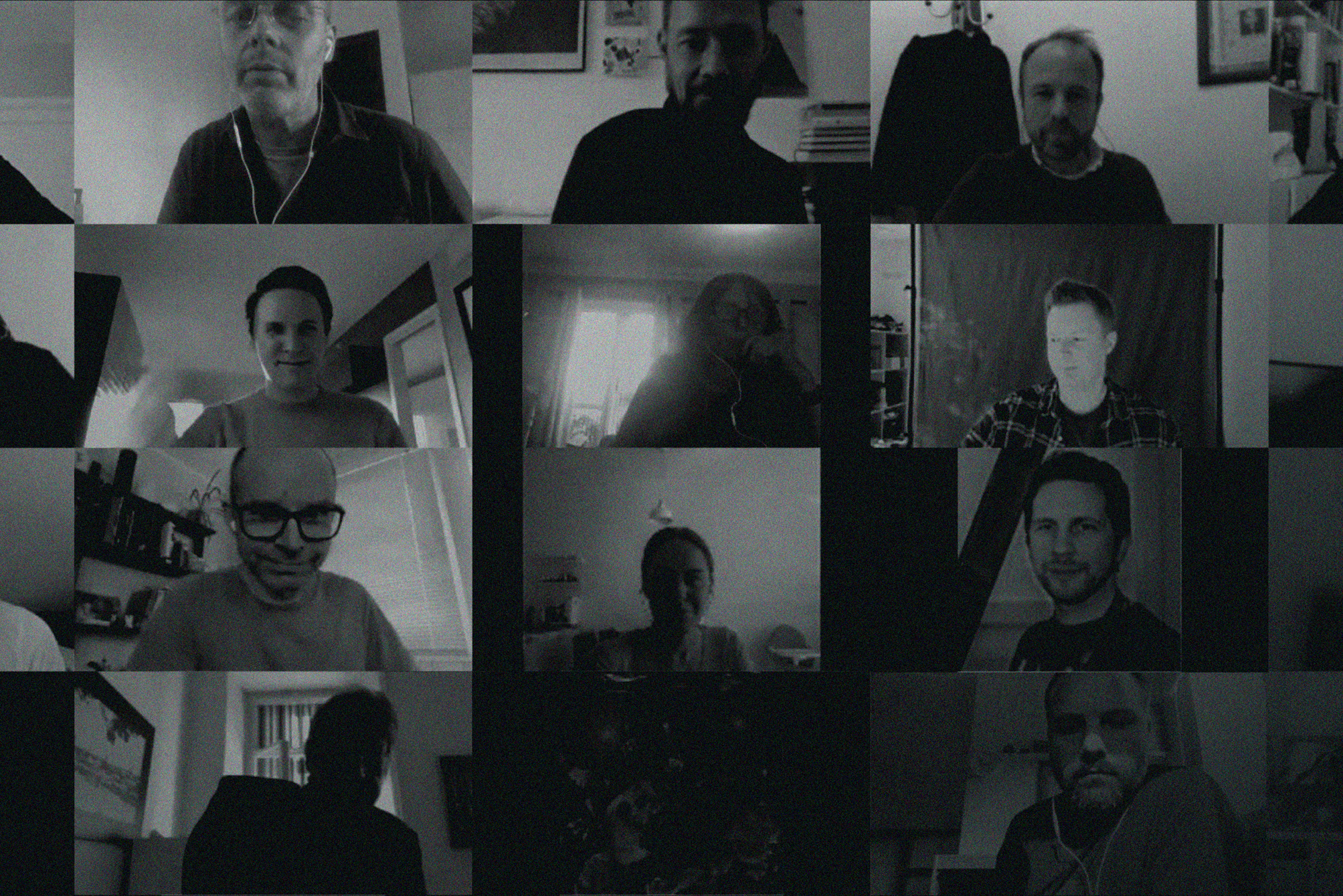
PROJECT LOG : 01
COVID 19 & ONLINE ACTIVITIES
The first VIPROS partner workshop and public dissemination event were heavily affected by the Covid-19 pandemic. They were hosted by AU and planned in collaboration between AU and the British Film Institute (BFI). They were intended to take place in London. However, due to the pandemic related disruptions, none of the VIPROS P.R. activities could be carried out as planned.
Instead, the events were moved on-line, foreshadowing the knowledge exchange and discussion formats, which became the predominant VIPROS fora for months to follow. Regardless, both events were effective and efficient. They assembled many and highly qualified participants, which informed and inspired the project partners as well as the participating specialists, creatives and decisionmakers

